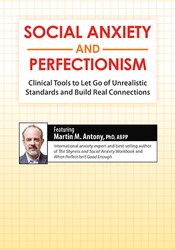Melden Sie sich noch heute für einen Online-Kurs an, um flexibel und im eigenen Tempo zu lernen - ein fester Zeitplan ist nicht erforderlich.


-
 Online-KursEgal, ob Sie ganz neu in der Internal Family Systems Therapy (IFS) sind oder das Modell schon seit Jahren praktizieren, melden Sie sich an und entdecken Sie, wie Sie das Modell verfeinern und anpassen können, um es an die individuellen Bedürfnisse Ihrer Klienten anzupassen.Wert: €1.140,66 *€275,99Egal, ob Sie ganz neu in der Internal Family Systems Therapy (IFS) sind oder das Modell schon seit Jahren praktizieren, melden Sie sich an und entdecken Sie, wie Sie das Modell verfeinern und anpassen können, um es an die individuellen Bedürfnisse Ihrer Klienten anzupassen.21 Okt, 2020Egal, ob Sie ganz neu in der Internal Family Systems Therapy (IFS) sind oder das Modell schon seit Jahren praktizieren, melden Sie sich an und entdecken Sie, wie Sie das Modell verfeinern und anpassen können, um es an die individuellen Bedürfnisse Ihrer Klienten anzupassen.Wert: €1.140,66 *€275,99
Online-KursEgal, ob Sie ganz neu in der Internal Family Systems Therapy (IFS) sind oder das Modell schon seit Jahren praktizieren, melden Sie sich an und entdecken Sie, wie Sie das Modell verfeinern und anpassen können, um es an die individuellen Bedürfnisse Ihrer Klienten anzupassen.Wert: €1.140,66 *€275,99Egal, ob Sie ganz neu in der Internal Family Systems Therapy (IFS) sind oder das Modell schon seit Jahren praktizieren, melden Sie sich an und entdecken Sie, wie Sie das Modell verfeinern und anpassen können, um es an die individuellen Bedürfnisse Ihrer Klienten anzupassen.21 Okt, 2020Egal, ob Sie ganz neu in der Internal Family Systems Therapy (IFS) sind oder das Modell schon seit Jahren praktizieren, melden Sie sich an und entdecken Sie, wie Sie das Modell verfeinern und anpassen können, um es an die individuellen Bedürfnisse Ihrer Klienten anzupassen.Wert: €1.140,66 *€275,99 -
 Online-KursGabor Maté geht über die Anleitung hinaus und demonstriert genau, wie er Compassionate Inquiry einsetzt, um Heilung zu ermöglichen. Erleben Sie, wie er seine einzigartige Methode mit über 10 Zuhörern anwendet.Wert: €689,89 *€275,99Gabor Maté geht über die Anleitung hinaus und demonstriert genau, wie er Compassionate Inquiry einsetzt, um Heilung zu ermöglichen. Erleben Sie, wie er seine einzigartige Methode mit über 10 Zuhörern anwendet.15 Jul, 2022Gabor Maté geht über die Anleitung hinaus und demonstriert genau, wie er Compassionate Inquiry einsetzt, um Heilung zu ermöglichen. Erleben Sie, wie er seine einzigartige Methode mit über 10 Zuhörern anwendet.Wert: €689,89 *€275,99
Online-KursGabor Maté geht über die Anleitung hinaus und demonstriert genau, wie er Compassionate Inquiry einsetzt, um Heilung zu ermöglichen. Erleben Sie, wie er seine einzigartige Methode mit über 10 Zuhörern anwendet.Wert: €689,89 *€275,99Gabor Maté geht über die Anleitung hinaus und demonstriert genau, wie er Compassionate Inquiry einsetzt, um Heilung zu ermöglichen. Erleben Sie, wie er seine einzigartige Methode mit über 10 Zuhörern anwendet.15 Jul, 2022Gabor Maté geht über die Anleitung hinaus und demonstriert genau, wie er Compassionate Inquiry einsetzt, um Heilung zu ermöglichen. Erleben Sie, wie er seine einzigartige Methode mit über 10 Zuhörern anwendet.Wert: €689,89 *€275,99 -
Werden Sie ein Partner
Aktuelle Themen:












